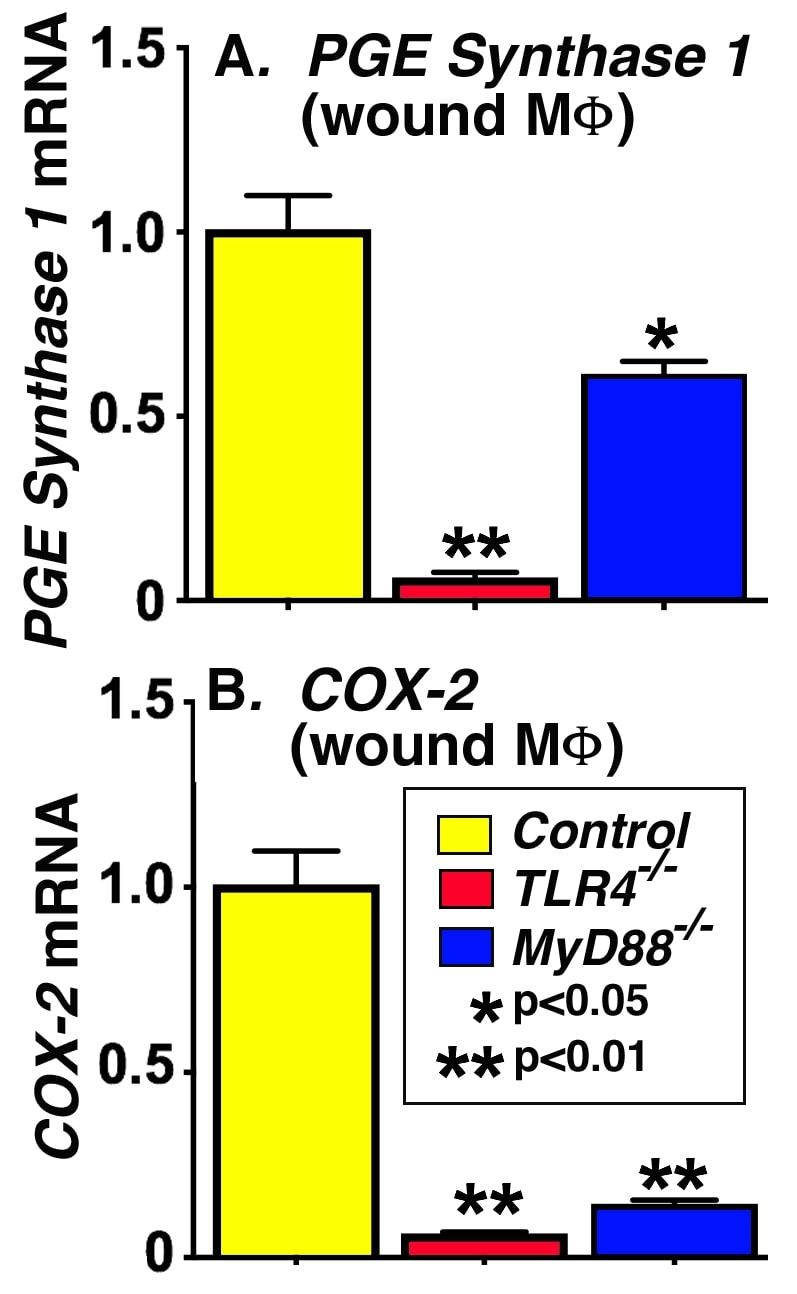W. J. Melvin1, F. M. Davis1, C. Audu1, A. Joshi1, A. Obi1, B. Moore1, K. A. Gallagher1 1University Of Michigan,Ann Arbor, MI, USA
Introduction: Persistent uncoordinated inflammation is a hallmark of non-healing diabetic wounds but our understanding of this pathophysiology remains incomplete. Our recent work has identified that overproduction of prostaglandin E2 (PGE2) in wound macrophages (Mφs), chiefly driven by overexpression of the cyclooxygenase-2 enzyme (COX-2), is a key contributor to this pathologic inflammation that inhibits normal wound healing. The etiology of this overexpression is not yet elucidated. Since TLR4 signaling has been found to be a crucial pathway in Mφs for the inflammatory response, we hypothesize that TLR4 signaling in wound Mφs regulates COX-2 and PGE2 expression and hence, pathologic inflammation in diabetic wounds.
Methods: C57BL/6 wild type mice with TLR4-/- and MyD88-/- knockouts (n=15 / group) were wounded with a 6mm punch biopsy and wounds were harvested after 5 days. Wound Mφs (CD3-CD19-NK1.1-LY6G-CD11b+) were isolated and analyzed for PGE Synthase 1 and COX-2 expression by quantitative PCR.
Results: Wound Mφs from mice deficient in the TLR4 receptor and its immediate downstream signaling component, a myeloid differentiation factor, MyD88, demonstrate significantly (p<0.05) decreased COX-2 and PGE2 expression compared to control wound Mφs. Differences between groups were evaluated using ANOVA.
Conclusion: The TLR4 pathway appears to regulate COX-2/PGE2 expression in wound Mφs and may mediate inflammation in wounds. Targeting this pathway in a Mφ-specific manner has therapeutic implications for improved wound healing in diabetes.
